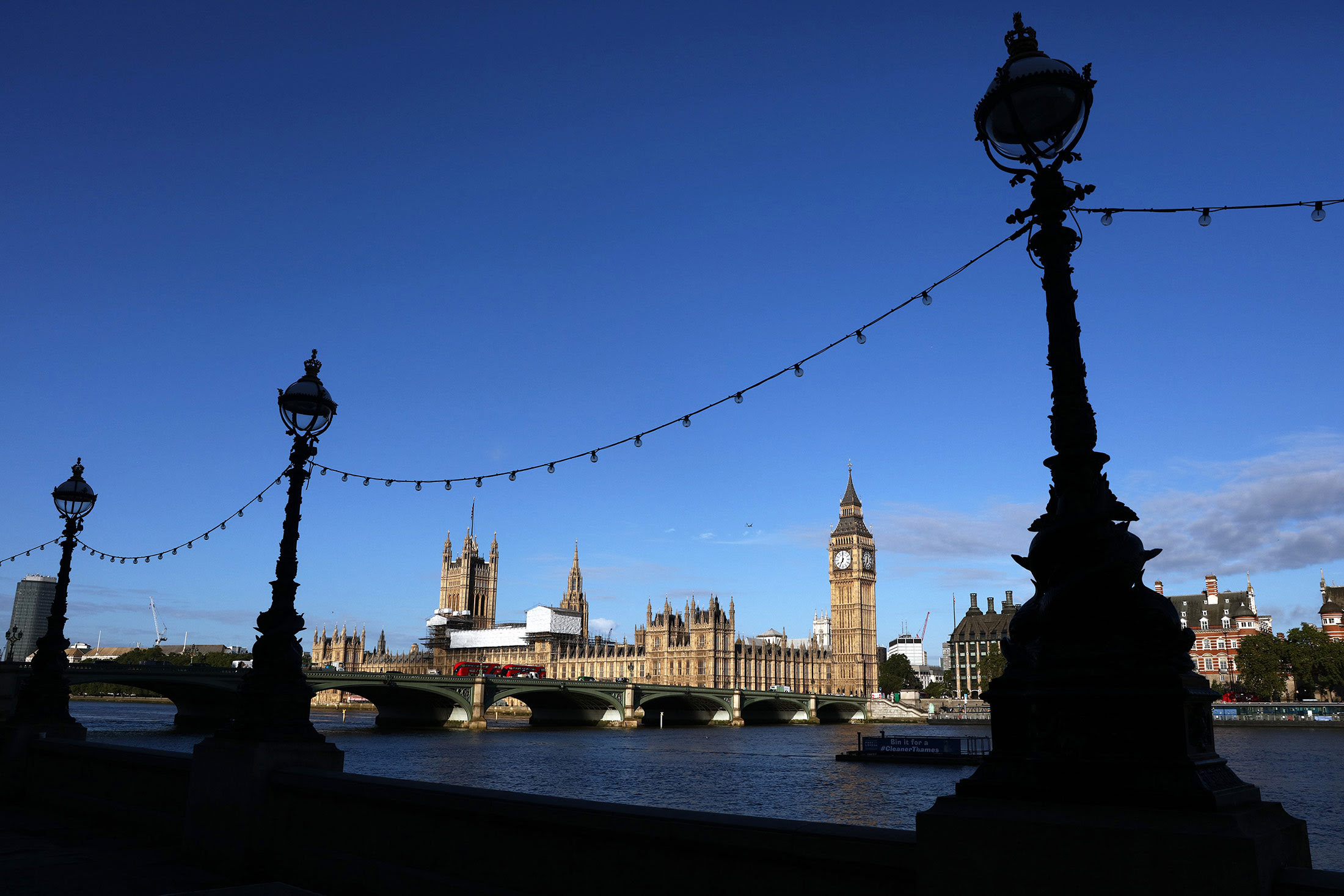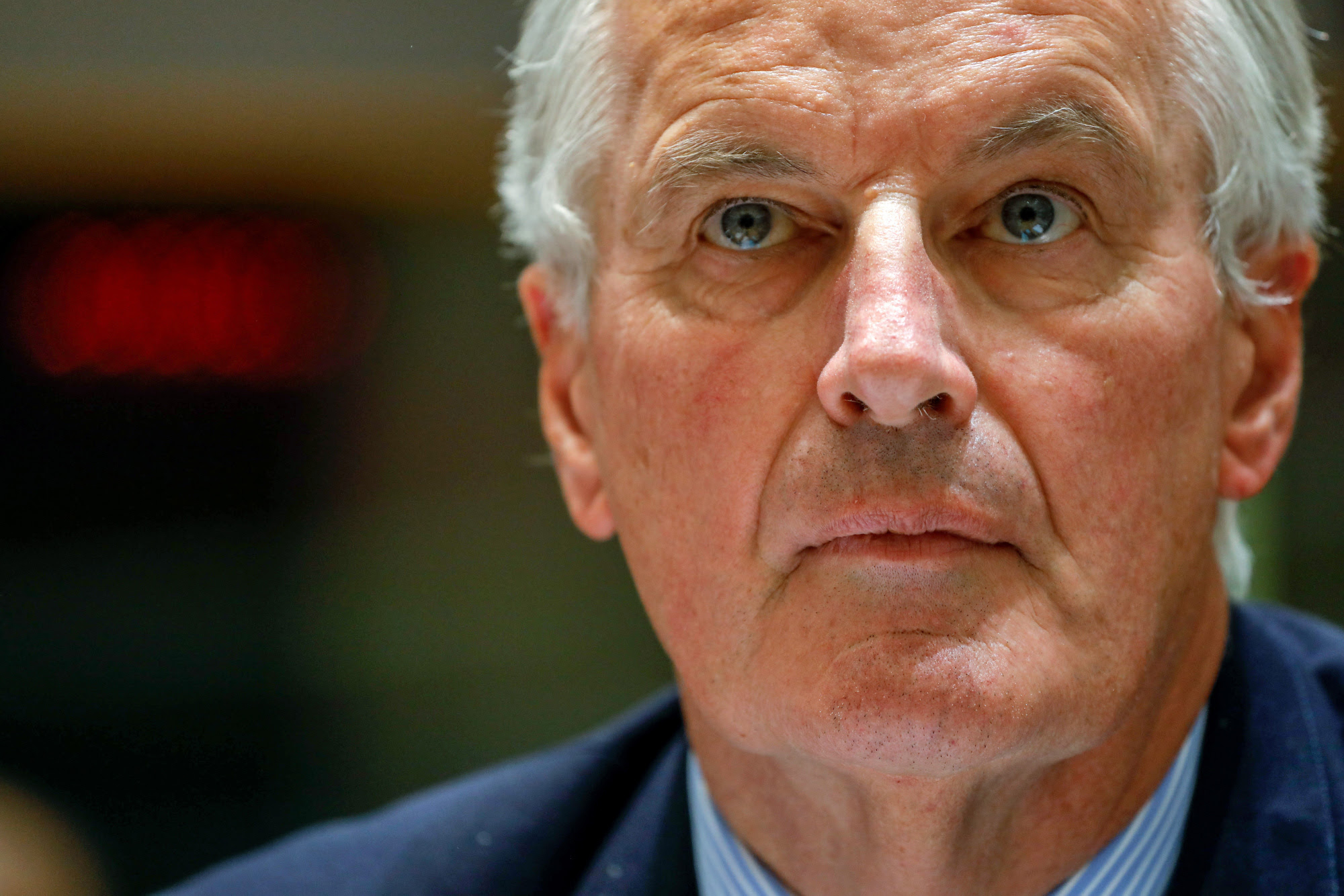May’s unhappy anniversary
Theresa May won’t have much time on Thursday to ponder the first anniversary of her becoming prime minister.
Amid questions over whether she will last another year, May is bracing for political trench warfare over Brexit as she finally unveils the landmark law that will remove Britain from the European Union.

The government will also publish three “position papers” today, covering nuclear materials and safeguarding issues, ongoing judicial and administrative proceedings, and privileges and immunities.
Opposition politicians are already plotting to unite with rebels in her Conservative Party to re-write the so-called Repeal Bill that will prepare the U.K.’s law book for the split. May’s team is said to be preparing for months of battles and will seek to make allies with political rivals, Bloomberg’s Tim Ross reports today.
“By working together, in the national interest, we can ensure we have a fully functioning legal system on the day we leave the European Union,” Brexit Secretary David Davis said in an email on Thursday, as he appealed to other parties for support. “The eyes of the country are on us, and I will work with anyone to achieve this goal and shape a new future for our country.”
May’s vision of a clean break is under attack from two fronts. Her critics in London are emboldened by her failure to win a majority in last month’s election, while EU negotiators are taking a firm line as talks unfold. On Wednesday, EU negotiator Michel Barnier implied the U.K. was being idle by not revealing where it stood on key issues.
At this point, those political rivals don’t seem entirely on May’s side either.
In an interview with The Guardian, Labour’s Brexit spokesman Keir Starmer put the government “on notice” that the opposition would not support the Repeal Bill in its current form. It would take only seven Tory lawmakers to rebel in order to potentially defeat the government in any vote in the House of Commons.
Starmer demanded changes to the bill in six areas, including the extent of the executive powers the draft law gives May’s ministers to alter legislation without full scrutiny from Parliament.
Vince Cable, the sole candidate for the leadership of the Liberal Democrats, told Bloomberg Television a lack of preparation from a divided U.K. government means Brexit talks could fail.
May was also warned by the public spending watchdog that the government’s strategy could fall apart like a “chocolate orange.”
For her part, the prime minister gave an interview to The Sun, sticking to her firm red line for there to be no European Court of Justice oversight over any U.K. area after Brexit.
Mr. Corybn Goes to Brussels
Shadow Foreign Secretary Emily Thornberry on Wednesday called the government’s Brexit policy a “mess” and urged May to “get a grip.”
On Thursday, Labour Leader Jeremy Corbyn will get a chance to show if he has a grip on his own approach when he heads to Brussels for talks with Barnier.
Mujtaba Rahman of the Eurasia Group said the meeting demonstrated Corbyn’s new-found importance. The Labour leader has so far found success in being “deliberately opaque” on Brexit. His party’s supporters are split on the topic and adopting a clearer stance would risk advertising those divisions, Rahman said.
Corbyn might, however, “risk a softer stance on the customs union and the European Court of Justice if he believes a tactical alliance with MPs from other parties could result in a House of Commons defeat for the government on Brexit,” said Rahman. “This would boost the chances of another general election and, with it, Corbyn’s chances of becoming prime minister.”
Leaders from Scotland and Wales are also Brussels-bound.
Brussels Is Back
The EU’s political capital is reborn, Bloomberg’s Editor-in-Chief John Micklethwait writes in Bloomberg Businessweek.
“Two events have changed everything,” he writes. “The first, ironically, was Brexit. Far from killing the EU, Brexit has helped reunite it. The second was the election of Emmanuel Macron in May this year, which has given the European project a purpose — or the promise of one.”
Going Nuclear
The U.K. is preparing to keep disruptions to a “minimum” when it leaves the EU’s nuclear safety watchdog, promises Energy Minister Richard Harrington, aiming to quell concerns that quitting Euratom could put cancer patients at risk.
The transportation of radioactive materials used to diagnose and treat cancer has already become grounds for a potential rebellion by Conservatives opposed to Brexit. During the debate, at least six Tories spoke up for retaining Euratom membership or of brokering an associate agreement with the body.
Brexit in Brief
- The U.K. public spending watchdog says there is no guarantee the government’s new customs system will be operational by the time of Brexit
- Conservative lawmaker and anti-Brexit campaigner Nicky Morgan is the new chair of the House of Commons Treasury Committee, scrutinizing the Bank of England and the U.K. Treasury
- The U.K.’s Competition and Markets Authority says it will need additional “resources and skills” to handle extra workload after Brexit
- NEX Group, Michael Spencer’s electronic-trading company, withdrew a resolution to allow the company to make political donations, following investor opposition
- Unemployment dropped to the lowest in 42 years, but overall earnings fell the most since August 2014 when adjusted for inflation
- Fitch describes Brexit negotiations as a “material risk” to the U.K.
- Europe’s pharmaceutical industry warns against an “unorderly” withdrawal which could leave vital medicines being held up at borders
- U.K. broadcast Channel 4 is “tightening belts” amid a Brexit-related slump in advertisements, says Chief Executive David Abraham
- The King of Spain hopes Spain and the U.K. can negotiate a deal on Gibraltar, he says while visiting London
- The Bank of England faces an unusual challenge: whether the U.K. economy "normal" in the Brexit area, writes Daniel Moss in Bloomber View.




Comentarios
Publicar un comentario